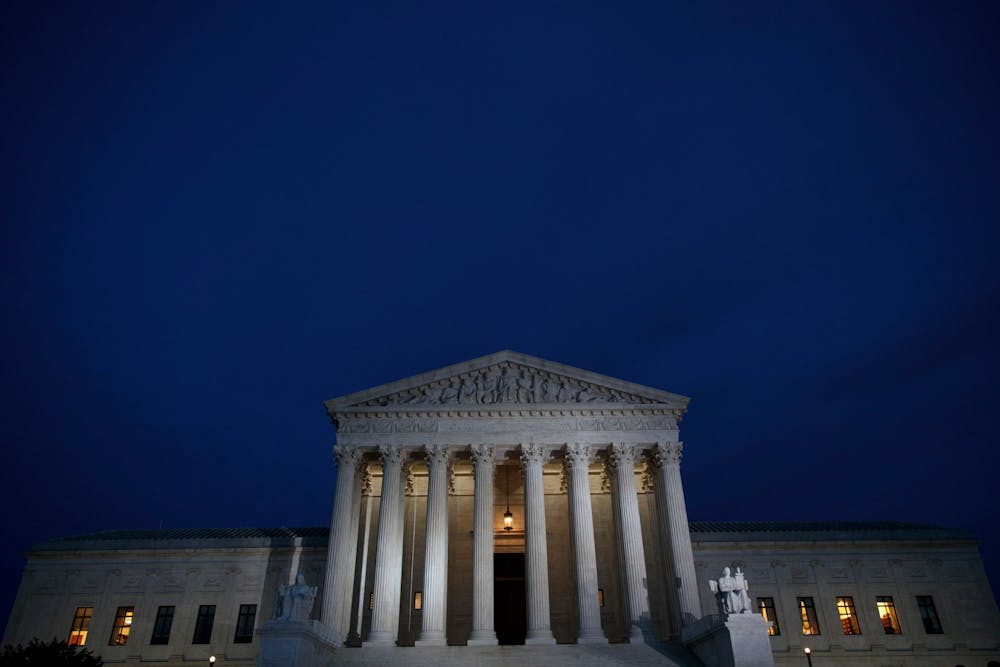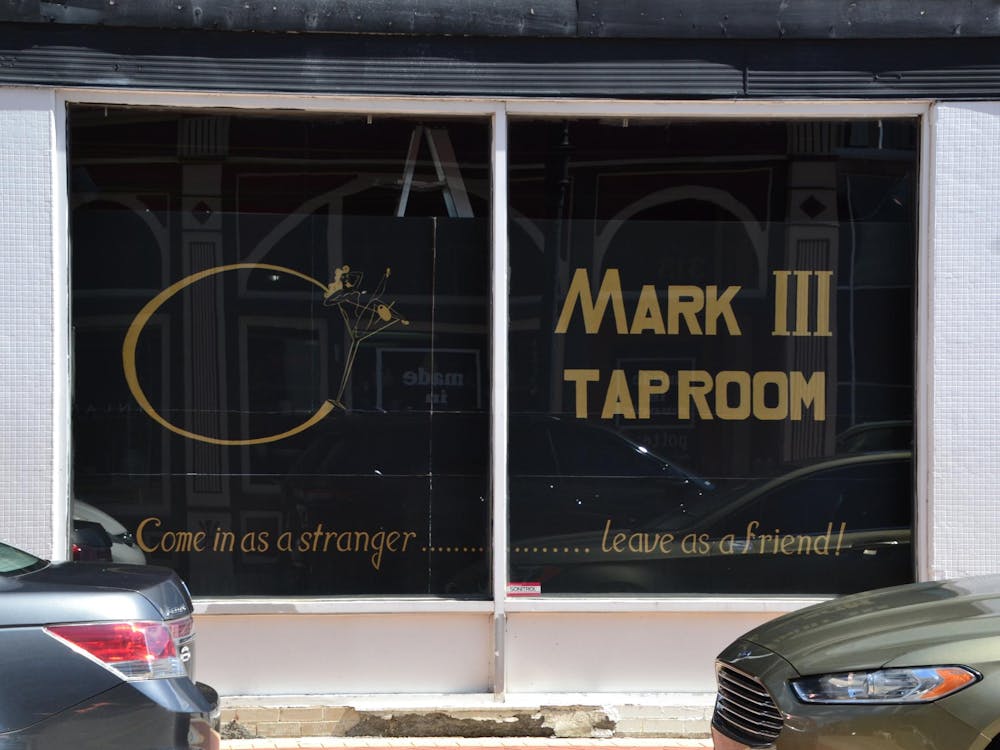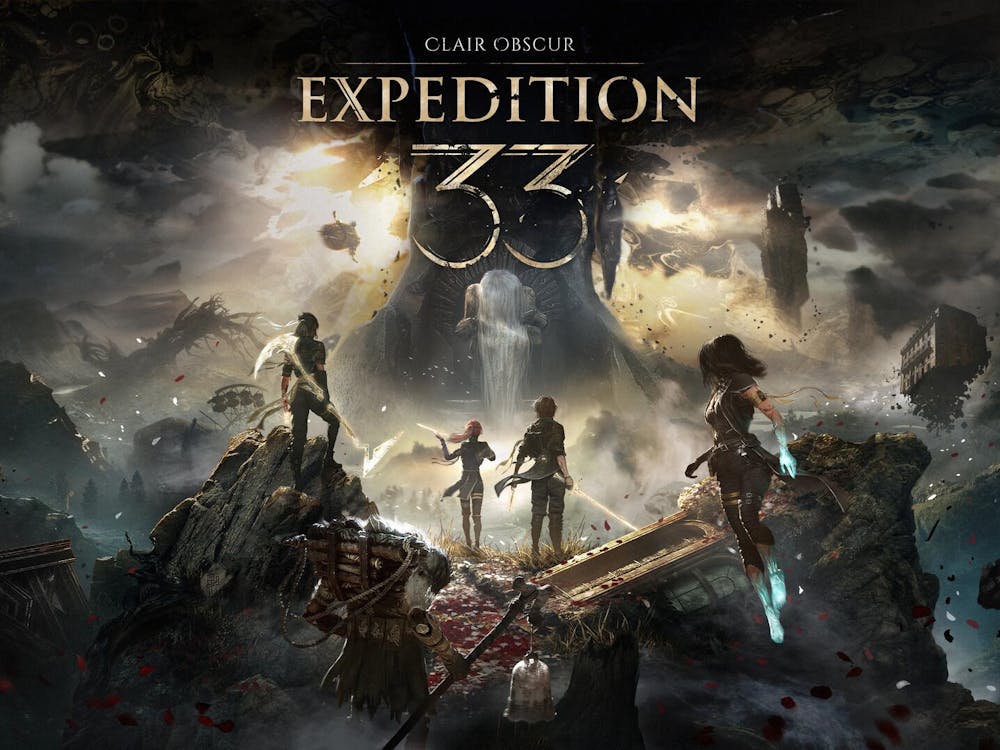Grayson Joslin is a sophomore journalism and political science major and writes “Soapbox” for The Daily News. His views do not necessarily reflect those of the newspaper.
I have been raised by empowering women all my life.
It is an aspect of my life that I am very grateful for. The many women in my life, especially my single mother and my grandmother, have instilled a positive, ambitious mindset into me and have helped me to become a better person with each passing day, both in public and in private. With every obstacle in my way, they encouraged me to keep on going and persevere.
However, I noticed something last Friday, June 24 – the sense of empowerment was not there in my mother. Instead, it was a sense of dread and disappointment.
I knew immediately why; earlier that day, the Supreme Court handed down their verdict in the Dobbs v. Jackson Women’s Health Organization case: the right to an abortion does not exist in the United States constitution, overturning Roe v. Wade and beginning a new, uneasy era for body autonomy, especially for those with uteruses, in the United States.
Many advanced nations, including the United Kingdom, France, and the Netherlands have open abortion laws allowing for abortions in case of rape, fetal impairment, socioeconomic factors or upon request; the overturning of Roe allows every individual state to make its own laws about abortion.
Currently, 16 states have bans that are either in effect or are expected to come into effect soon. This includes the second most populous state Texas. On the contrary, 20 states and Washington D.C. have codified abortion into law, with some of these states also expanding access in the wake of the Dobbs ruling. Indiana is one of the seven states where it is legal for the time being. With this ruling, many in the United States will not have that freedom to choose if they have an abortion, for whatever reason, even though 3/5ths of Americans support abortions in most or all circumstances.
My mom noted something when we talked about the ruling in the privacy of our home. She noted how her grandmother was not even able to open a checking account whenever she was starting a family in the 1940s and 1950s, and how she was scared that women’s rights in this country would regress following this decision.
The Dobbs ruling confirms a major shift in the philosophy of the Court and its interpretation of the Constitution; that it is a static document, meaning that there is less flexibility to change the meaning of the Constitution unless an amendment is approved. This means that most progress made could be reversed.
One word I have heard brought up time and time again since Friday’s ruling is “privacy”, and that the decision to have an abortion is private and should not be a public matter. This right to privacy was established in judicial precedent in Roe v. Wade, and that right is in danger of being erased in the near future.
The reversal of Roe v. Wade has far-reaching consequences beyond abortion access; it also means that the status quo of privacy is about to be disrupted, and it could lead to our basic privacy rights being erased.
The right to privacy first appeared in the 1965 Griswold v. Connecticut ruling, when the Supreme Court ruled that numerous amendments implied a right to privacy and allowed for the constitutional right to birth control. This was extended in the 1973 Roe ruling, when the Court derived the right to privacy from the Fourteenth Amendment’s Due Process clause, which states that a state shall not “deprive any person of life, liberty, or property, without due process of law.” This precedent allowed for the ruling that a pregnancy could be terminated of that person’s own accord.
While the decision of the court in the Dobbs case did not explicitly state the overturning of the right of privacy, there is a heavy implication of that in the near future. If the Supreme Court does decide to reverse the notion of a right to privacy, there will be a seismic impact.
The group that would be the most vulnerable to the eradication of the right to privacy is the LGBTQ+ community. The right to privacy was crucial in the 2003 Lawrence v. Texas ruling, where the Court ruled that sodomy laws were unconstitutional. This landmark ruling opened the door for same-sex sexual activity to be legal across the United States and began the legal pathway for the recognition of federal same-sex marriage, something not accomplished until the Obergefell v. Hodges ruling 12 years later.
Same-sex marriage rights are considered to be implied rights in the Constitution – wherein it is not written in the Constitution and is to be implied to exist. Since these rights were created by a Supreme Court ruling, this means that the Supreme Court could easily revoke the right to same-sex marriage.
This was shown in Justice Clarence Thomas’ concurrence of the Dobbs decision. Thomas, noted by many observers to be the most conservative judge on the court, did not agree with Justice Samuel Alito’s majority opinion about the Dobbs case being restricted to only the constitutional right to an abortion. Instead, he suggested that the court should review the Griswold, Lawrence and Obergefell cases; all three cases built upon the right to privacy. It is a sheer shame in this country where the rights of millions of people to legally marry the people that they love rests in the hands of nine non-elected individuals.
The potential loss of privacy goes beyond the right to marry the person you love, regardless of gender, however. Even though privacy has been under attack, with the conservative direction the court is taking, this could make privacy truly a thing of the past.
The place where people are most concerned about their privacy in light of the Dobbs ruling is period tracking apps. Our digital footprint is growing every day, and people are justifiably worried that if they have an abortion, then they would be used against them in a criminal case. Most period tracking apps have no guarantee that users' data will not be shared with third-party sources. In the past, apps such as Flo, have been found to give sensitive information to Facebook, among other third-party sources.
Now, in a post-Roe world, those seeking to have an abortion are worried that if their tracking apps notice a change in their cycle, then that state can be used against them. Especially in states like Missouri, which is considering making traveling to have an abortion a crime, people are worried about what information their apps truly give away.
By indefinitely taking away our privacy, it means that most things, such as private sexual conduct and what we do on our phones, could be taken away from us. Alito’s claim that there was “no history or tradition” about the constitutional right to abortion could lead us through a downward spiral of our rights getting stripped away from us. Cases, such as Carpenter v. the United States, which requires that acquiring cell site information requires a warrant, could be overturned, allowing for more unethical surveillance by our government.
We have seen how Big Tech uses our data against us and for their own personal gain ever since Edward Snowden came out with his highly classified information from the National Security Agency. This has triggered a new debate about our privacy in the Digital Age, and even though Justice Thomas’ concurrence represents just one-ninth of the most important judicial institution in our country, it could represent a dark turn our country could be after.
Roe v. Wade was not exclusively a Supreme Court case about abortion; it was also a case about the right to privacy. America, the country that is known for building its pride on freedom, contradicted itself by taking away rights and building up the possibility to take away other freedoms.
The ruling of Dobbs shows that despite what public opinion states, the nine inside the Marble Palace can dictate legal precedent for years to come. The federal protection for abortion has just fallen, and we could be in grave danger of losing our federal protections for same-sex marriages and contraceptive access. We are backsliding into dangerous waters with this ruling, and we must make sure that our right to privacy remains; a right, not a privilege.
Contact Grayson Joslin with comments at grayson.joslin@bsu.edu or on Twitter @GraysonMJoslin.





